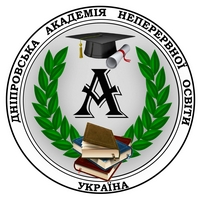PHILOSOPHICAL ANALYSIS OF CONCEPTUAL FUNDAMENTALS OF EDUCATION FOR SUSTAINABLE DEVELOPMENT
Abstract
Summary. In the work on the basis of interdisciplinary and metaparadigmatic approaches dominated by systems
analysis and culturological approach, the study of education for sustainable development as a scientific object that
combines the subject of philosophy of education and pedagogy. A generalized analysis of existing approaches to
understanding education for sustainable development is given. Modern education for sustainable development is a
harmonious complement to humanistic education in the part related to the interaction of man and the environment.
Today, as always, there is a need to maximize humanization processes in various spheres of human life. However, along
with this, new priorities are coming to education, which reflect the processes of globalization and the need to harmonize
human-nature relations. Accordingly, the focus of education for sustainable development is the problems of optimal
organization of the environment of mankind in general and each person in particular. It is concluded that the studied
phenomenon acts as an integral construct that can be used for systematic analysis of changes in the education of the
post-classical model. It is shown that the main directions of education development are determined by the principles
of sustainable development society and the reflection of these principles in the educational sphere. The interrelation
of the formation of a safe and favorable environment for human development and changes in modern education, as
well as areas of education for sustainable development in specific pedagogical representations. in modern conditions,
education for sustainable development goes far beyond traditional environmental issues. It serves as a basis for the
integration of almost all innovation processes in the field of education, ensuring the complementarity of changes in education and society. The basic dimensions of modern education (mediality, subject-centeredness, openness, etc.)
are also characteristics of education for sustainable development. The main direction of further research should be
considered the development of methodology and methods of conceptual synthesis of educational innovations based
on the principles of sustainable development.
References
1. Коренева І. М. Феномен «Освіта для сталого розвитку» : сутність та сучасні особливості концепту. Український
педагогічний журнал. 2018. № 2. С. 113-123.
2. Куценко В., Трілленберг Г. Екологічна освіта – важливий інструмент сталого розвитку. Економіка природокористування і охорони довкілля. 2014. №7. С. 20-22.
3. Ніколаєв К. Д. Випереджаюча освіта для сталого розвитку як інноваційна форма організації освітнього простору
передпідготовки вчителів. Наукові записки Національного педагогічного університету ім. М.П .Драгоманова : зб. наук.
пр. Серія Педагогічні та історичні науки. Київ, 2015. № 126. С. 116-124.
4. Повестка дня на XXI век (принята Конференцией ООН по окружающей среде и развитию, Рио-де-Жанейро, 3-14 июня
1992 года). База данных «Декларации, конвенции и другие нормативные документы» / ООН. URL : http://www.un.org/ru/
documents/decl_conv/conventions/ agenda21_ch36.shtml (дата звернення : 27.12.2021).
5. Хмелевська О. М. Освіта для сталого розвитку : зміст та інституції. Демографія та соціальна економіка. 2018. № 1.
С. 29-42.
6. Цілі Сталого Розвитку : Україна. Національна доповідь. Міністерство економічного розвитку і торгівлі України (2017).
URL : http://www.idss.org.ua/monografii/2017_SDGs_NationalReport.pdf (дата звернення : 27.12.2021).
7. Andersone, R. The Content Reform of Education for Sustainable Development. Rural Environment. Education. Personality.
(REEP). Proceedings of the International Scientific Conference. Jelgava : LLU. 2015. № 8. Р.75-81.
8. Bonn Declaration, аdopted in Bonn, Germany on 31 March to 2 April 2009. Database UNESDOC / UNESCO. URL : http://
unesdoc.unesco.org/images/0018/001887/188799e.pdf (дата звернення : 27.12.2021).
9. Bratanich, B., Karpan, I., Chernikova, N., Motuz, T., Lysokolenko, T. Conceptual principles of education for sustainable
development. European Center of Sustainable Development, ICSD 2020, Rome, Italy. 2020. (Doi : 10.14207/ ejsd.2020.v9n2p99).
Р. 99-114
10. Education for Sustainable Development Goals : Learning Objectives / UNESCO Education Sector. 2017. URL : http://
unesdoc.unesco.org/images/0024/002474/247444e.pdf (дата звернення : 27.12.2021).
11. Global Action Programme (GAP) on Education for Sustainable Development (ESD) : Goals and Objectives / UNESCO. URL :
https://en.unesco.org/gap/goals-and-objectives?language=en (дата звернення : 27.12.2021).
12. McKeown, R. Education for Sustainable Development Toolkit. Paris : Printed in UNESCO's workshop. 2006.

 ISSN
ISSN  ISSN
ISSN 

